‘A Game of Trolls’ is a Musical Theater to ‘Remember’
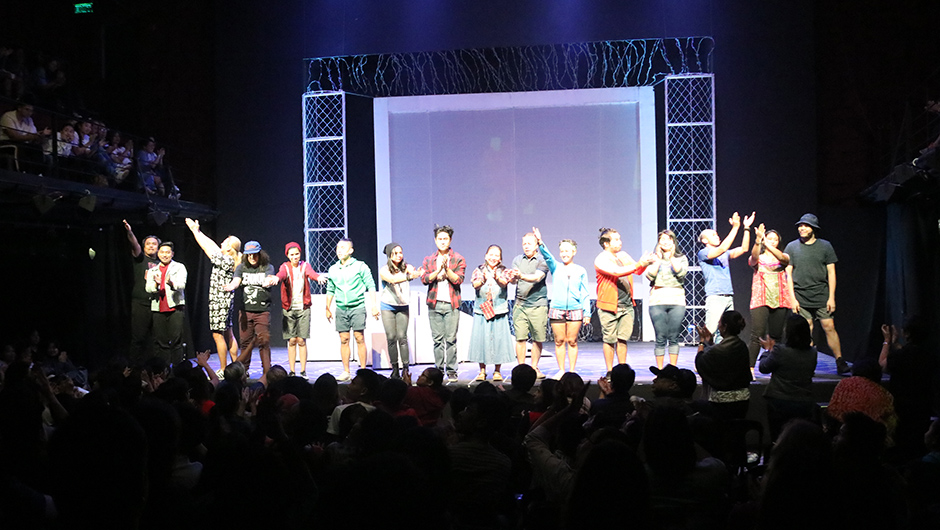
The Philippine Educational Theater Association (PETA), with the support of Friedrich Naumann Foundation for Freedom, staged a musical that featured stories from Martial Law in a current setting. A Game of Trolls (AGoT), a musical theater production, is aimed to encourage millennials to re-discover the side of history that has been a subject of reinterpretation.
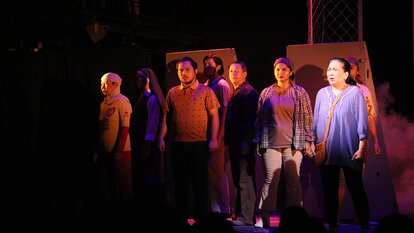
The production tackles historical revisionism, false heroes, fake news, apathy and misinformation. In a statement, PETA describes it as “a musical that is not simply an effort to revive fading memories of Philippines’ horrific past, but also a reminder of why people must NOT allow a strongman rule to be set up in the Philippines again.” In the same statement, PETA hopes that the play will serve as Filipinos’ “call to action”, to encourage them to do their own research, to think critically, and to act responsibly.
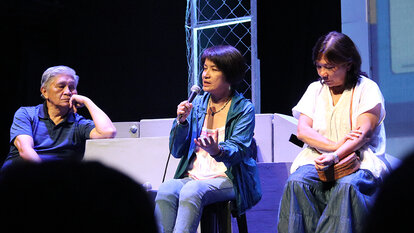
Asked what they expect from the play, one of the many young viewers, Iñaqui Angelo Mangahas, simply said: “I would like to witness a truthful narrative about the Marcos dictatorship.”
The director of the play, Maribel Legarda explained why there was a need to sustain the staging of the play.
“The main objective really is for people to get informed, and for people to remember — because most people resist to remember. If we don’t learn from our history, what is the point? We will keep on committing the same mistakes,” Legarda said.
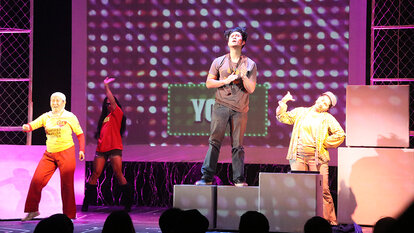
AGoT revisits the dark days of ‘Marcos dictatorship’. These were demonstrated by characters that played as ghosts of Martial Law victims, who fear of being erased in people’s memories as their stories are slowly being forgotten. The ghosts haunt Heck, the lead character, who plays as a troll for an organization that runs an online pro-martial law campaign. The encounters forced him to reflect on his own beliefs and his relationship with his mother, a former Martial Law activist.
Playwright of the play, Liza Magtoto described the form of the play as a fusion of different inspirations, from poetry to rap battle; infusing flashbacks and modern twists. “We’re finding a form to fit the taste of millennials and other generation, so the discourse and the remembering could start and learning could happen,” Magtoto said.

President Ferdinand E. Marcos placed the Philippines under Martial Law on September 21, 1972 after signing Proclamation No. 1081. This gave President Marcos absolute power over the country. The declaration allowed for warrantless arrests and illegal detention and denied the fundamental right to due process. Martial Law lasted until January 17, 1981.
The Task Force Detainees of the Philippines (TFDP) reported at least 9,000 victims of human rights violations from 1969 to 1986, the year when the Marcos administration finally ended. According to TFDP’s report, “nearly six in 10 victims suffered arrest/detention (56% or 5,044 victims), after which, salvaging (13% or 1,217 victims) and massacre (10% or 892 victims) were the most common types of human rights violations inflicted upon the victims.”
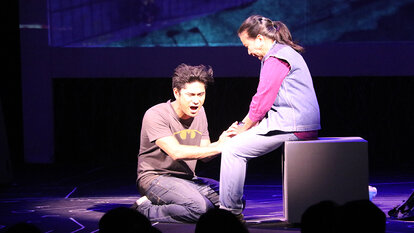
#Woke
Immediately after the show, a dialogue between the audience and the production cast and director and playwright followed.
PETA started the discussion with a question addressed to the younger crowd, who did not experience Martial Law under President Marcos: “Inaral nyo ba ng Martial Law sa eskwelahan? Ano ang masasabi nyo sa palabas?” (Did you learn about Martial Law from your school? What are your thoughts about the play?)
A member of Youth Achievers Performing Arts from the Polytechnic University of the Philippines (PUP) answered: “Mas naunawaan ko ang mga totoong nangyari. Naging instrumento po kayo sa pagmulat sa amin sa mga nangyari noong panahon ng Martial Law.” (I was able to understand the stories more. You were instrumental in making us aware about the situations during the time of Martial Law.)
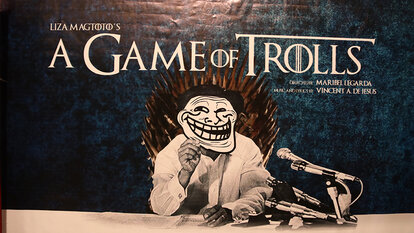
A student from Payatas-C Elementary School also remarked: “Dati po pro-Marcos po kami. Ang naituturo po samin ay yung mabubuting naidulot ng Marcos. Kaya hindi po namin alam kung gaano kalaki ang issue tungkol sa panunungkulan ni Marcos.” (We used to be pro-Marcos. We were only taught about positive things about Marcos. That is why we did not know about the magnitude of the issues during his presidency.)
Mr. Ed Dela Torre, one of the resource persons during the talkback session, who was also an activist during the Martial Law era, spoke about how the play allowed people to exercise freedom to think.
“As activists, we were taught that every conversation must end with a conversion. But this is not a good strategy. In contrast, this play gave space for people to think critically. It gave us a chance to discern what is just and humane. At the end of the play, what I value most is my freedom to choose. That is the essence of democracy,” Dela Torre remarked.

A Game of Trolls is part of PETA’s 51st season campaign, the State of the Nation Campaign. It is a creative campaign that hopes to utilize the arts and engage artists to contribute to the discourses that concern the nation.
“The arts, especially theater, can tell stories, make us understand history and our past. It can communicate and educate, bring people together, inspire and heal,” said Ms. Beng Cabangon, PETA’s Executive Director.
As FNF turns 60 this year, it celebrates innovative ways to promote liberal values of freedom and democracy. With this, FNF Philippines Country Director Wolfgang Heinze said: “As a German institution that was primarily conceived to promote democracy and freedom through civic education, we are pleased to collaborate with PETA, a celebrated institution tha shares FNF’s advocacies to embolden these values. In times like these it is important that we don’t only speak to the minds, but reach the hearts of people. We applaud PETA’s strong tradition of performing to educate and to empower Filipinos to be part of nation-building.”